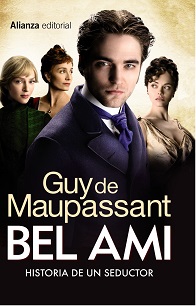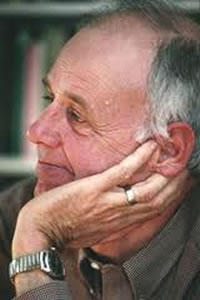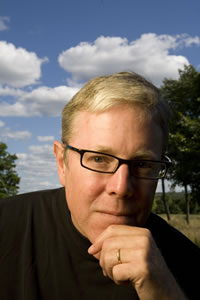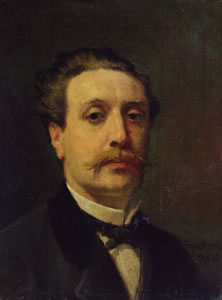De Amerikaanse schrijver Richard Preston werd geboren op 5 augustus 1954 in Cambridge, Massachusetts. Zie ook mijn blog van 5 augustus 2007.
Uit: The Hot Zone
„The headache begins, typically, on the seventh day after exposure to the agent. On the seventh day after his New Year’s visit to Kitum cave-January 8, 1980-Monet felt a throbbing pain behind his eyeballs. He decided to stay home from work and went to bed in his bungalow. The headache grew worse. His eyeballs ached, and then his temples began to ache, the pain seeming to circle around inside his head. It would not go away with aspirin, and then he got a severe backache. His housekeeper, Johnnie, was still on her Christmas vacation, and he had recently hired a temporary housekeeper. She tried to take care of him, but she really didn’t know what to do. Then, on the third day after his headache started, he became nauseated, spiked a fever, and began to vomit. His vomiting grew intense and turned into dry heaves. At the same time, he became strangely passive. His face lost all appearance of life and set itself into an expressionless mask, with the eyeballs fixed, paralytic, and staring. The eyelids were slightly droopy, which gave him a peculiar appearance, as if his eyes were popping out of his head and half closed at the same time. The eyeballs themselves seemed almost frozen in their sockets, and they turned bright red. The skin of his face turned yellowish, with a brilliant starlike red speckles. He began to look like a zombie. His appearance frightened the temporary housekeeper. She didn’t understand the transformation in this man. His personality changed. He became sullen, resentful, angry, and his memory seemed to be blown away. He was not delirious. He could answer questions, although he didn’t seem to know exactly where he was.
When Monet failed to show up for work, his colleagues began to wonder about him, and eventually they went to his bungalow to see if he was all right. The black-and-white crow sat on the roof and watched them as they went inside. They looked at Monet and decided that he needed to get to a hospital. Since he was very unwell and no longer able to drive a car, one of his co-workers drove him to a private hospital in the city of Kisumu, on the shore of Lake Victoria. The doctors at the hospital examined Monet, and could not come up with any explanation for what had happened to his eyes or his face or his mind. Thinking that he might have some kind of bacterial infection, they gave him injections of antibiotics, but the antibiotics had no effect on his illness..”
Richard Preston (Cambridge, 5 augustus 1954)
De Nicaraguaanse schrijver en politicus.Sergio Ramírez Mercado werd geboren in Masatepe op 5 augustus 1942. Zie ook mijn blog van 5 augustus 2007.
Uit: Adios Muchachos (Vertaald door Mark Falcoff)
“Doctor Emilio Alvarez Montalván, Nicaragua’s most respected conservative ideologue, once said—when we had already been defeated in the 1990 elections—that Sandinismo had brought to Nicaraguan political culture for the very first time a sense of responsibility towards the poor.
This is, in truth, one of the irreversible legacies of the Revolution, beyond the ideological illusions that confused us at the time, beyond, too, of the bureaucratic excesses and deficiencies of Marxism in practice, beyond the inexperience and the improvisations, the poses, the cheap imitations, the rhetoric. The poor continued to be the humanist frame of references of the project that came apart, piece by piece, on the road—from the catacombs and proscription to the loss of power and an ethical catastrophe, a subterranean impulse, or one perpetually postponed, but never fully extinguished.
In identifying itself with the poor, the Revolution was radical in the purest sense of the term, and under the rubric of a search for justice, capable of being repeatedly naïve or arbitrary, many times losing a proper perspective of what was possible, or even what was just and desirable. What is just and desirable should, in fact, confront reality, and in that very sphere of reality we find economics. Nicaragua’s economic system suffered from obsolescence, and required changes. But it also represented the texture of social relations built up over centuries of tradition. It was precisely there, in fact, where we faced our greatest resistance to needed change—a resistance that we did not take seriously as we should because we believed that merely by ending poverty all Nicaragua’s traditional beliefs would disappear.
The image that dominated our imaginations was that of people with nothing to lose, the wretched of the earth represented by Leonel Rugama in his poems. The miners of Siuna terminally afflicted with silicosis; the peasants in the valleys of the Jinotega mountains, who did not have salt; or in the lost canyons of Matagalpa where vitamin deficiencies produced night blindness; the day-workers on the banana plantations in Chinandega that slept in kennel-like boxes; or the legions of ragpickers in the dumps of Acahualinca along the sewage canals of Lake Managua—mothers with their children, grandfathers and grandfathers, fighting the buzzards and other scavengers of prey for something to eat.”
Sergio Ramírez (Masatepe, 5 augustus 1942)
De Amerikaanse schrijver en dichter Conrad Potter Aiken werd geboren in Savannah, Georgia op 5 augustus 1889. Zie ook mijn blog van 5 augustus 2007.
EVENSONG
I
IN the pale mauve twilight, streaked with orange,
Exquisitely sweet,–
She leaned upon her balcony and looked across the street;
And across the huddled roofs of the misty city,
Across the hills of tenements, so gray,
She looked into the west with a young and infinite pity,
With a young and wistful pity, as if to say
The dark was coming, and irresistible night,
Which man would attempt to meet
With here and there a little flickering light. . . .
The orange faded, the housetops all were black,
And a strange and beautiful quiet
Came unexpected, came exquisitely sweet,
On market-place and street;
And where were lately crowds and sounds and riot
Was a gentle blowing of wind, a murmur of leaves,
A single step, or voice, and under the eaves
The scrambling of sparrows; and then the hush swept back.
II
She leaned upon her balcony, in the darkness,
Folding her hands beneath her chin;
And watched the lamps begin
Here and there to pierce like eyes the darkness,–
From windows, luminous rooms,
And from the damp dark street
Between the moving branches, and the leaves with rain still sweet.
It was strange: the leaves thus seen,
With the lamplight’s cold bright glare thrown up among them,–
The restless maple leaves,
Twinkling their myriad shadows beneath the eaves,–
Were lovelier, almost, than with sunlight on them,
So bright they were with young translucent green;
Were lovelier, almost, than with moonlight on them. . . .
And looking so wistfully across the city,
With such a young, and wise, and infinite pity
For the girl who had no lover
To walk with her along a street like this,
With slow steps in the rain, both aching for a kiss,–
It seemed as if all evenings were the same,
As if all evenings came
With just such tragic peacefulness as this;
With just such hint of loneliness or pain,
The quiet after rain.
III
Would her lover, then, grow old sooner than she,
And find a night like this too damp to walk?
Would he prefer to stay indoors and talk,
Or read the evening paper, while she sewed, or darned a sock,
And listened to the ticking of the clock:
Would he prefer it to lamplight on a tree?
Would he be old and tired,
And, having all the comforts he desired,
Take no interest in the twilight coming down
So beautifully and quietly on the town?
Would her lover, then, grow old sooner than she?
Conrad Aiken (5 augustus 1889 – 17 augustus 1973)
De Amerikaanse dichter, schrijver, essayist en criticus Wendell Berry werd geboren op 5 augustus 1934 in Henry County, Kentucky. Zie ook mijn blog van 5 augustus 2007.
The Man Born to Farming
The Grower of Trees, the gardener, the man born to farming,
whose hands reach into the ground and sprout
to him the soil is a divine drug. He enters into death
yearly, and comes back rejoicing. He has seen the light lie down
in the dung heap, and rise again in the corn.
His thought passes along the row ends like a mole.
What miraculous seed has he swallowed
That the unending sentence of his love flows out of his mouth
Like a vine clinging in the sunlight, and like water
Descending in the dark?
Like The Water
Like the water
of a deep stream,
love is always too much.
We did not make it.
Though we drink till we burst,
we cannot have it all,
or want it all.
In its abundance
it survives our thirst.
In the evening we come down to the shore
to drink our fill,
and sleep,
while it flows
through the regions of the dark.
It does not hold us,
except we keep returning to its rich waters
thirsty.
We enter,
willing to die,
into the commonwealth of its joy.
In this World
The hill pasture, an open place among the trees,
tilts into the valley. The clovers and tall grasses
are in bloom. Along the foot of the hill
dark floodwater moves down the river.
The sun sets. Ahead of nightfall the birds sing.
I have climbed up to water the horses
and now sit and rest, high on the hillside,
letting the day gather and pass. Below me
cattle graze out across the wide fields of the bottomlands,
slow and preoccupied as stars. In this world
men are making plans, wearing themselves out,
spending their lives, in order to kill each other.
Wendell Berry (Henry County, 5 augustus 1934)
De Franse schrijver Guy de Maupassant is geboren op 5 augustus 1850 in kasteel Miromesnil bij Dieppe. Zie ook mijn blog van 5 augustus 2006 en ook mijn blog van 5 augustus 2007.
Uit: L’auberge
“Puis, dès qu’il sommeillait, vaincu par la fatigue, il entendait la voix qui le faisait bondir sur ses pieds.
Une nuit enfin, pareil aux lâches poussés à bout, il se précipita sur la porte et l’ouvrit pour voir celui qui l’appelait et pour le forcer à se taire.
Il reçut en plein visage un souffle d’air froid qui le glaça jusqu’aux os et il referma le battant et poussa les verrous, sans remarquer que Sam s’était élancé dehors. Puis, frémissant, il jeta du bois au feu, et s’assit devant pour se chauffer; mais soudain il tressaillit, quelqu’un grattait le mur en pleurant.
Il cria éperdu: “Va-t’en.” Une plainte lui répondit, longue et douloureuse.
Alors tout ce qui lui restait de raison fut emporté par la terreur. Il répétait: “Va-t’en” en tournant sur lui-même pour trouver un coin où se cacher. L’autre, pleurant toujours, passait le long de la maison en se frottant contre le mur. Ulrich s’élança vers le buffet de chêne plein de vaisselle et de provisions, et, le soulevant avec une force surhumaine, il le traîna jusqu’à la porte, pour s’appuyer d’une barricade. Puis, entassant les uns sur les autres tout ce qui restait de meubles, les matelas, les paillasses, les chaises, il boucha la fenêtre comme on fait lorsqu’un ennemi vous assiège.
Mais celui du dehors poussait maintenant de grands gémissements lugubres auxquels le jeune homme se mit à répondre par des gémissements pareils.
Et des jours et des nuits se passèrent sans qu’ils cessassent de hurler l’un et l’autre. L’un tournait sans cesse autour de la maison et fouillait la muraille de ses ongles avec tant de force qu’il semblait vouloir la démolir; l’autre, au-dedans, suivait tous ses mouvements, courbé, l’oreille collée contre la pierre, et il répondait à tous ses appels par d’épouvantables cris.
Un soir, Ulrich n’entendit plus rien, et il s’assit, tellement brisé de fatigue qu’il s’endormit aussitôt.
Il se réveilla sans un souvenir, sans une pensée, comme si toute sa tête se fût vidée pendant ce sommeil accablé. Il avait faim, il mangea. »

Guy de Maupassant (5 augustus 1850 – 6 juli 1893)
De Amerikaanse dichter Ron Silliman werd geboren op 5 augustus 1946 in Pasco, Washington. Zie ook mijn blog van 5 augustus 2007.
Uit: You
XXII
Small boy in a seaman’s cap reminds me suddenly of my own such
hat at that age, cap my father left behind. A light fog promises to
burn off. A week between homes.
Voices, verbs, verses (word, bird, third – absurd). Boy’s shout
from the street stories below brings me out of my sleep instantly
until I determine that all my children are here inside asleep. The
absolute second you have the first opportunity in over a week to
relax, to take a deep breath, give a sigh, you realize from its
shallow painful wheeze that you’ve had bronchitis for days. Pesto
potato pizza.
Seek out the path of most resistance.
A splinter I thought would work itself out has instead infected the
whole finger. Dream in which, although I haven’t seen you in ages
and we were never more than cordial in a professional context, I
wake to discover you next to me in bed naked – the actual body is
always such a surprise – leaning toward me for a long, slow,
deliberate kiss, guiding my hand gradually from you small almost
conical breast south until I enter, first the front, then behind, and
you twist, groaning, a broad grin across your face. Day that never
happens.
Day that I discover total allergy to this powder detergent, big
welt-like rashes everywhere from my neck to the soles of my feet.
Cardinal in the yard smaller than I expecte
d. You live on the east
coast now.
When, on the car radio, they hit the baby-in-the-microwave story,
I hit the button. Among the morning’s rich cacophony of birdsong,
pick out first one, then another, that sound completely unfamiliar,
using each in turn as the foreground through which to hear the
whole (nearby crow entirely out of scale). Upstairs, footsteps pace
back and forth, for which I construct my own imaginary narrative:
a young girl, a Latina whose parents, themselves the children of
farm laborers, are schoolteachers, goes on scholarship to an
excellent school, then rises quickly to corporate middle
management, one day to discover her own desire for one of her
employees, an older married man entirely inappropriate for her
future – what should she do? Velcro sandals.
The sky grows lighter before it starts to rain. I stand in an empty
attic studio, wondering where to put the desk. Young poodle
lopes up to the wire fence. Fan rotates slowly over the vacant
kitchen.
Ron Silliman (Pasco, 5 augustus 1946)
Zie voor onderstaande schrijver ook mijn blog van 5 augustus 2007.
De Duitse dichter en schrijver Christian Wagner werd geboren op 5 augustus 1835 in Warmbronn.










![sergioramirez22[1] sergioramirez22[1]](https://romenu553547602.files.wordpress.com/2008/08/3ec2a-dyn006_original_295_221_pjpeg_2535747_104da7fe8cdeae7132a9dd2b25ace32f.jpg)










